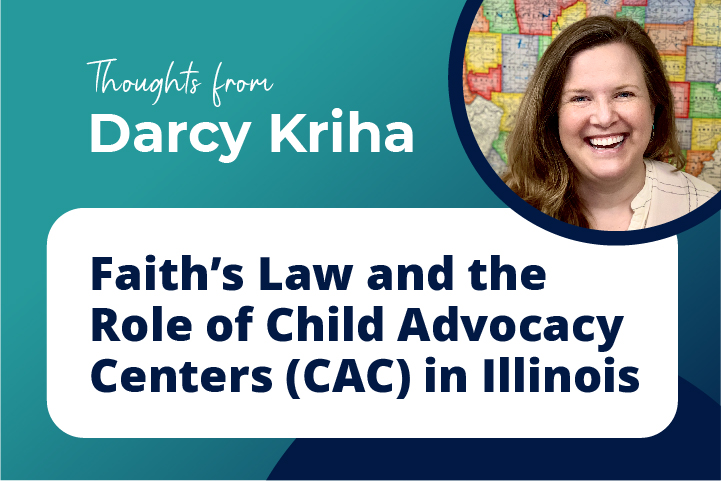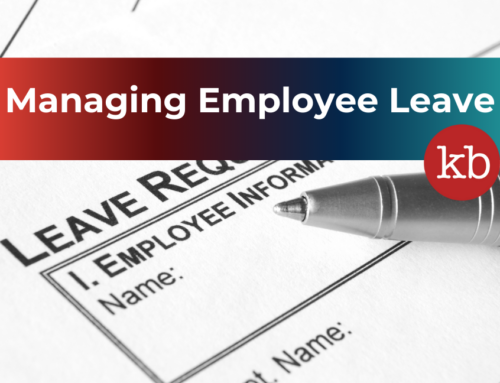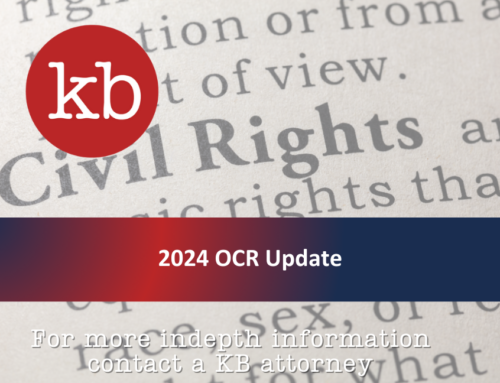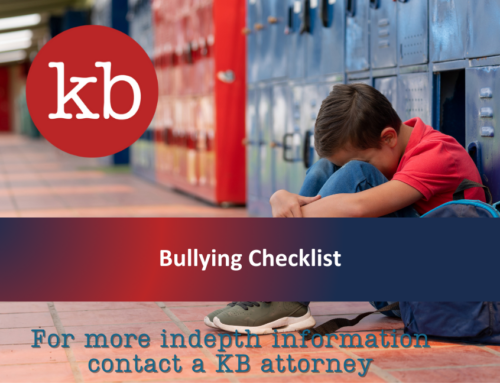Faith’s Law is a new Illinois statute first passed in 2021 with a comprehensive trailer bill in 2023. The employment aspects of the statute have received most of the attention, but school districts are also required to notify parents/guardians about the availability of the ISBE Faith’s Law Resource Guide at the beginning of each school year, starting right now, with the 2023-2024 school year. In addition, school districts must provide a copy of the resource guide to a parent/guardian upon request and may also make the resource guide available on the school district’s website. School districts are well advised to send an email blast to parents/guardians that contains a link to the resource guide either on the school district’s website (optional) or on the ISBE website at the beginning of the 2023-2024 school year and each year thereafter.
Faith’s Law – Background
Faith’s Law is named after child sexual abuse survivor Faith Colson, who graduated from an Illinois high school in the early 2000’s. Ms. Colson was sexually abused by one of her high school teachers. After graduation, she found out that a few staff members at the high school suspected that the teacher’s relationship with her was not appropriate, but they did not report their concerns. Faith’s Law was passed in response to her experience as two separate pieces of legislation effective in 2021 and 2023. The Illinois State Board of Education (ISBE) website offers detailed information about Faith’s Law, including a webinar, guidance FAQs, and sample forms here.
Faith’s Law Part 1: Public Act 102-0676 took effect on December 3, 2021. For the first time, the School Code defined ‘sexual misconduct’ and required school boards to adopt a code of professional conduct policy for all employees on or before July 1, 2022. 105 ILCS 5/22-85.5(c).
Illinois School Code, 105 ILCS 5/22-85.5(c)
Sec. 22-85.5. Sexual misconduct in schools.
(c) In this Section, “sexual misconduct” means any act, including, but not limited to, any verbal, nonverbal, written, or electronic communication or physical activity, by an employee or agent of the school district, charter school, or nonpublic school with direct contact with a student that is directed toward or with a student to establish a romantic or sexual relationship with the student. Such an act includes, but is not limited to, any of the following:
- A sexual or romantic invitation.
- Dating or soliciting a date.
- Engaging in sexualized or romantic dialog.
- Making sexually suggestive comments that are directed toward or with a student.
- Self-disclosure or physical exposure of a sexual, romantic, or erotic nature.
- A sexual, indecent, romantic, or erotic contact with the student.
The statute also expanded the definition of ‘grooming’ in the Illinois Criminal Code, adding it to the list of conduct that qualifies as abuse under the Abused and Neglected Child Reporting Act (ANCRA). 720 ILCS 5/11-25.
Illinois Criminal Code, 720 ILCS 5/11-25
Sec. 11-25. Grooming.
(a) A person commits grooming when he or she knowingly uses a computer on-line service, Internet service, local bulletin board service, or any other device capable of electronic data storage or transmission, performs an act in person or by conduct through a third party, or uses written communication to seduce, solicit, lure, or entice, or attempt to seduce, solicit, lure, or entice, a child, a child’s guardian, or another person believed by the person to be a child or a child’s guardian, to commit any sex offense as defined in Section 2 of the Sex Offender Registration Act, to distribute photographs depicting the sex organs of the child, or to otherwise engage in any unlawful sexual conduct with a child or with another person believed by the person to be a child. As used in this Section, “child” means a person under 17 years of age.
(b) Sentence. Grooming is a Class 4 felony.
(Source: P.A. 100-428, eff. 1-1-18.)
Finally, this first piece of legislation required additional professional development training for educators.
Faith’s Law Part 2: Public Act 102-0702 took effect on July 1, 2023. This amendment added employment history reviews as part of the hiring and vetting process for school districts in Illinois. 105 ILCS 5/22-94. It also requires parents/guardians to be notified when sexual misconduct by a staff member against a student is suspected or alleged. If a school superintendent has reasonable cause to believe a staff member has committed sexual misconduct, the superintendent must make a report to the regional superintendent of schools and state superintendent of ISBE. Finally, the second piece of legislation allows ISBE to initiate the process to revoke or suspend a license, endorsement, or approval for reasons including sexual misconduct.
Children’s Advocacy Centers of Illinois (CACI)
Faith’s Law has shed light on the role played by the Children’s Advocacy Centers of Illinois (CACI) which was established in 1995 as a not-for-profit 501(c)(3) organization in Springfield, Illinois. There are currently 41 Child Advocacy Centers (CAC) operating throughout Illinois under the CACI umbrella. These CAC facilities collectively serve thousands of children each year who are sexually abused or the victims of serious physical injury. In 2022 alone, CACI conducted forensic interviews of 12,343 children.
CACI’s overarching philosophy is that children begin to heal the moment they are heard. When there is an allegation of child sexual abuse or severe physical abuse, children are referred to a local CAC, typically by the Illinois Department of Children and Family Services (DCFS). There, the child is interviewed by trained professionals, allowing the child to share what happened with a trained interviewer who knows the right questions to ask in a way that does not retraumatize the child. Sometimes referred to as a ‘forensic interview’ this process is the cornerstone of a child abuse investigation. Members of the CACI multidisciplinary team (medical and mental health professionals, law enforcement officials, state prosecutors, child protective services, etc.) observe the interview and work together collaboratively to determine next steps. Following the interview, the child, as well as family members, are offered medical exams, therapy, courtroom preparation, victim advocacy, case management, and other supportive services. These services are coordinated by the multidisciplinary team, which is a core part of the work of the CAC’s. A YouTube video (2:48) explains the CACI multidisciplinary process in more detail.
Without the services of CACI, a child may be asked to explain the most traumatic event of their life repeatedly, to doctors, law enforcement officials, lawyers, therapists, investigators, prosecuting attorneys, judges, etc. They may have to talk about that traumatic experience in a police station where they fear they might be in trouble or may be pressed with questions by a well-meaning staff member or other adult that could ultimately hurt the case against the perpetrator.
Are the services provided by CACI referenced in Faith’s Law?
Yes. Faith’s Law contained a new provision (105 ILCS 5/2-3.188) requiring ISBE to develop and maintain a comprehensive resource guide designed to provide information for students, parents/guardians, and school personnel about sexual abuse response and prevention resources available in their communities. ISBE first published its comprehensive 21-page Faith’s Law Resource Guide on June 12, 2023.
Are school districts required to notify parents/guardians about the Faith’s Law Resource Guide?
Yes. Faith’s Law specifically requires a school district to notify parents/guardians about the availability of the Faith’s Law Resource Guide at the beginning of each school year, starting with the 2023-2024 school year. In addition, school districts must provide a copy of the resource guide to a parent/guardian upon request and may also make the resource guide available on the school district’s website. Ideally, each school district should send an email message to parents/guardians that contains a link to the resource guide either on the school district’s website (optional) or on the ISBE website at the beginning of the 2023-2024 school year and each year thereafter.
To what extent do school districts and CAC facilities currently interact with each other?
This varies between school districts. Some school districts have a close working relationship with their local CAC facility due to regional proximity, shared staff training, or a long-standing practice of collaboration. Many school districts are generally not as familiar with the services their local CAC provides. Part of the impetus beyond Faith’s Law was to promote the sharing of information about CAC services on a more widespread basis.
What additional notifications must be provided to parents/guardians (if any)?
School districts are required to notify parents/guardians of students with whom a school district employee, agent, or contractor is alleged to have engaged in sexual misconduct, including whether any formal action has been taken against the employee, e.g., accepting the employee’s resignation. This notification must be memorialized in writing as soon as feasible and must include available counseling, medical, and mental health resources in the local community.
What is the “Domestic and Sexual Violence and Parenting Resource Coordinator”?
Effective July 1, 2025, each school district in Illinois must appoint a “Domestic and Sexual Violence and Parenting Resource Coordinator” who will be responsible for coordinating services for students who have been sexually abused or otherwise sustained serious physical injury, no matter who the perpetrator is. 105 ILCS 5/26A-35. In other words, the perpetrator need not be a school district employee, but can be a parent/guardian, relative, neighbor, stranger, etc.
How do we locate our local CAC facility?
The ISBE Faith’s Law Resource Guide (see pages 9-13) contains a comprehensive list of CAC facilities in alphabetical order. A map of the CAC facilities with hyperlinks is located on the CACI website at childrensadvocacycentersofillinois.org/about/mapV2.
Are school districts required to refer students to a local CAC for an interview?
Generally speaking, no. School districts in Illinois are not required to refer students to local CAC facilities. Certainly, this is an option that school districts have, but it is not legally required. In most situations, DCFS or local law enforcement officials are responsible for referring the student to the local CAC when a DCFS or police investigation is initiated.
If the situation does not involve sexual abuse or serious bodily injury, can school personnel interview a student?
Yes. The vast majority of the time school personnel can and should interview students for their version of events in the normal course. This is necessary to ensure that students are provided with requisite ‘due process’ – the right to tell their side of the story about a situation that may result in discipline, implementation of supportive services, etc. Sometimes information that is disclosed during interviews of students by school personnel triggers a mandated report to DCFS; this happens when child neglect or abuse is suspected or alleged, as discussed more fully below.
What if the situation involves sexual abuse or serious physical injury?
When sexual abuse or serious physical injury of a minor child is alleged or suspected, this will always trigger a DCFS hotline call (800-25-ABUSE or 800-252-2873). School employees in Illinois are Mandated Reporters who are required by law to report suspected child neglect or abuse by calling the DCFS hotline. This responsibility derives from the Illinois Abused and Neglected Child Reporting Act (ANCRA), 325 ILCS 5/1 et seq. School personnel should refrain from asking the student detailed or probing questions, which not only retraumatizes the student, but can also affect the student’s ability to accurately recall events. Even adults who are asked to recall facts tend to misstate specific details the more times they tell their story. The prudent response in these situations is to remain calm, inform the building principal or other administrator, provide the student with a comfortable and safe space, actively listen, visually assess the child for bruises/injuries (if any), and take brief contemporaneous notes. The individual whom the child confides in is called an ‘outcry witness’ and there is no higher calling in the field of education. Children confide in adults they trust and believe are in a position to help. Call DCFS immediately to make the mandated report and wait for their direction on next steps. Typically, DCFS will refer the student to the local CAC that same day (or within a short timeframe) for a forensic interview.
Are CAC interviews recorded?
Yes. All forensic interviews are recorded electronically (audio/visual). Effective January 1, 2020, the Children’s Advocacy Center Act was amended to remove the requirement that a parent/guardian consent to recording the CAC interview of their child. 55 ILCS 80/4.5(a).
Illinois Children’s Advocacy Center Act, 55 ILCS 80/1 et seq.
Sec. 4.5. Forensic interviews; electronic recordings.
(a) Consent is not required for a forensic interview to be electronically recorded. Failure to record does not render a forensic interview inadmissible.
Can school districts use CAC interview recordings in a termination hearing?
The 2020 CAC amendment also specifically allows the CAC recording of the child’s interview to be used in administrative hearings (e.g., teacher termination hearings) and judicial proceedings so as not to retraumatize the student. 55 ILCS 80/4.5(b).
Illinois Children’s Advocacy Center Act, 55 ILCS 80/1 et seq.
(b) A forensic interview, an electronic recording, or a forensic interview transcription or electronic recording is confidential and exempt from public inspection and copying under Section 7.5 of the Freedom of Information Act and may only be viewed by a court, attorneys, investigators, or experts for the purpose of judicial and administrative hearings and shall not be disseminated except pursuant to a court’s protective order.
Contact Darcy and the KB team for more answers to Faith’s Law and the CACI. Click here to download this newsletter.






